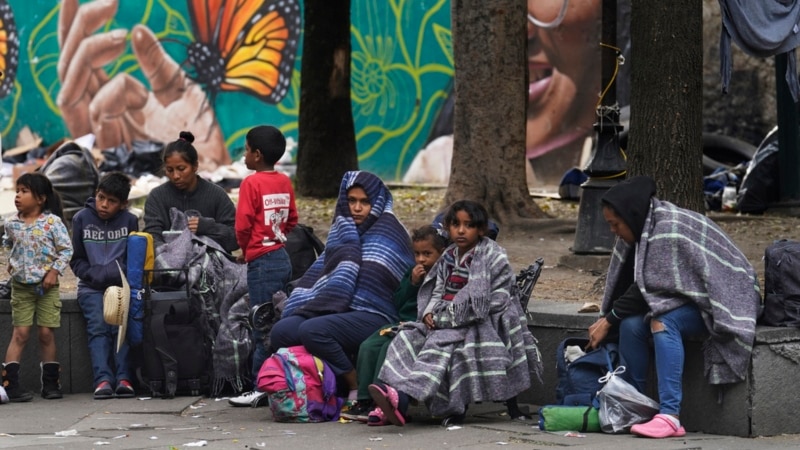Mexico and Venezuela announced Saturday that they have restarted repatriation flights of Venezuelans migrants in Mexico, the latest move by countries in the region to take on a flood of people traveling north to the United States.
The move comes as authorities say at least 10,000 migrants a day have been arriving at the U.S.-Mexico border, many of them asylum-seekers. It also comes as a migrant caravan of thousands of people from across the region — largely Venezuelans — has trekked through southern Mexico this week.
The repatriation flights are part of an agreement made between regional leaders during a summit in Mexico in October that aimed to seek solutions for migration levels that show few signs of slowing down.
Mexico’s Ministry of Foreign Relations said the two countries began repatriations with a flight on Friday and a second on Saturday in an effort to “strengthen their cooperation on migration issues.” The statement also said the two countries plan to implement social and work programs for those repatriated to Venezuela.
“Mexico and Venezuela reiterate their commitment to address the structural causes that fuel irregular migration in the region, and to achieve a humanitarian management of such flows,” the statement read.
Mexico’s government said it previously carried out a similar repatriation flight January 20 with 110 people.
As migration has soared in recent years, the U.S. government has pressured Latin American nations to control the movement of migrants north, but many transit countries have struggled to deal with the quantities of people.
This week, U.S. Secretary of State Antony Blinken and other Biden administration officials were in Mexico City to meet with Mexican President Andrés Manuel López Obrador about the high levels of migrants landing on the U.S.-Mexico border.
López Obrador said he also spoke about the issue in a phone call with President Joe Biden on December 20.
“He asked — Joe Biden asked to speak with me — he was worried about the situation on the border because of the unprecedented number of migrants arriving at the border,” Mexico’s leader said. “He called me, saying we had to look for a solution together.”
López Obrador has said he is willing to help, but in exchange he wants the U.S. to send more development aid to migrants’ home countries and to reduce or eliminate sanctions against Cuba and Venezuela.
Mexico’s president and other critics of American foreign policy have cited the sanctions on Cuba and Venezuela as one of the root causes of high migration.

